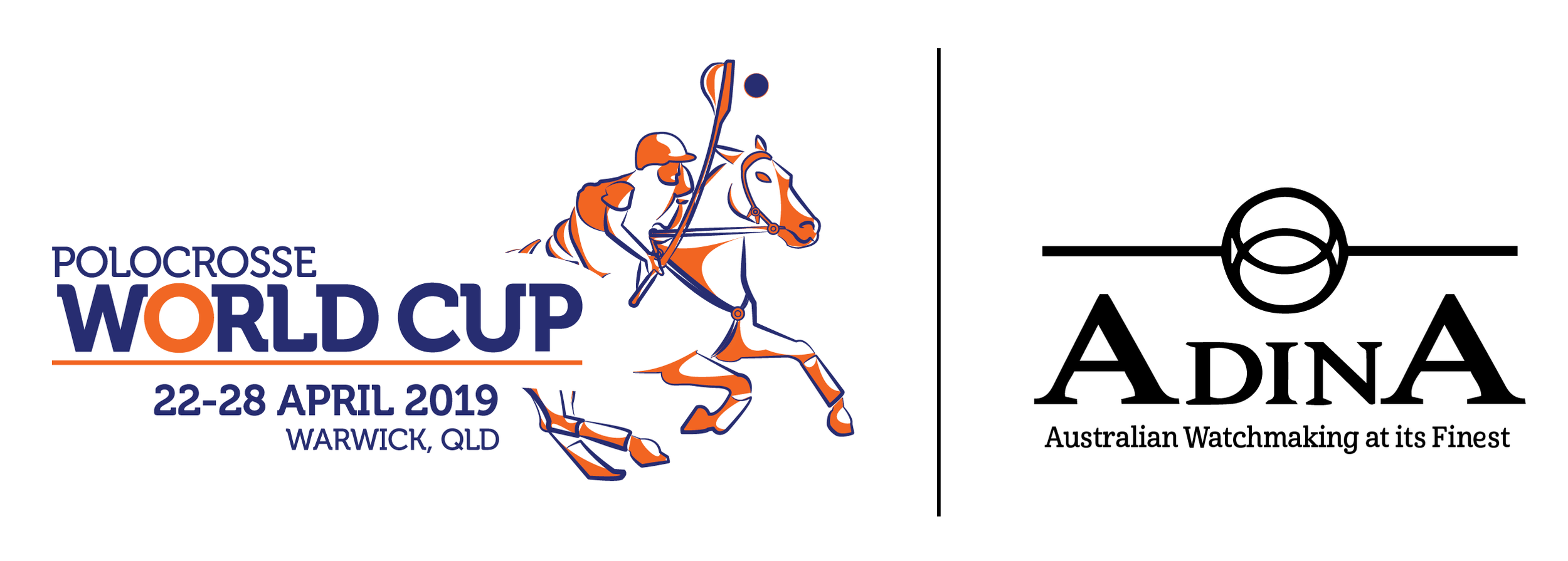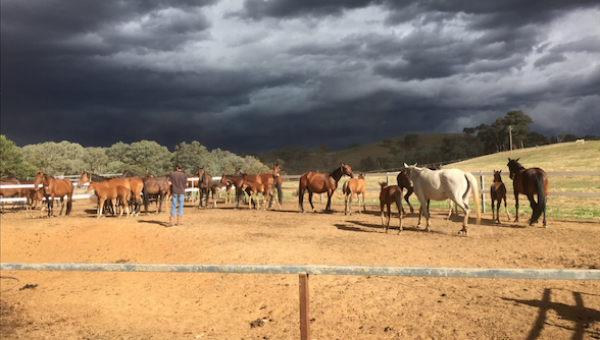Grills Family Breeds Polocrosse Magic - Horses and Children!
Sara Grills has lived and breathed Australian Stock Horses her whole life, from using them on her family’s farm as a child and utilising their skill and agility during polocrosse matches, to successfully breeding them through the family business, Berragoon ASH Stud in Holbrook NSW. It’s fair to say that Sara knows a thing or two about this iconic, versatile Australian animal!
With two of her children recently chosen to be on the Australian team for the Adina Polocrosse World Cup in 2019, we spoke to Sara about her love for the Australian Stock Horse, Berragoon’s involvement in the Adina Polocrosse World Cup 2019, and why she chooses to lend some of their best horses (and breeders!) to strangers.
How long have you been breeding Australian Stock Horses?
My mum started in 1974, not long after the Australian Stock Horse Society was formed. We had a family property at Hay and horses had always been a big part of our lives. We used Stock Horses on the farm and my sister and I were involved in pony club. I joined the business in 1979 when I finished school, so have been involved in breeding for nearly 40 years. My husband Charlie, sister Debbie and I took over the business in 1987 and have been running it ever since.
Tell us about Berragoon ASH Stud?
Berragoon is a stock horse stud on 4,000 acres at Holbrook, NSW. We specialize in artificial breeding and help to make the process easy and accessible for all interested horse owners. Many of our superior mares are polocrosse horses, so the artificial breeding allows us to breed progeny from them without taking them out of the competitive circuit. Rather than breeding one foal each year from a valuable mare, we can breed multiple. We also work closely with horse owners and help them to purchase embryos and manage the artificial breeding process. We complete all embryo procedures and transplant embryos into recipient mares.
Debbie, Charlie and I have been running the stud since 1987, taking over from my mother, and now our children, Lucy and Jim, and their partners, Matt Davison and Katie Wills, are integral to the stud’s success. It is a true family business!
Recipient mares and foals
How did you become involved in polocrosse?
Polo and polocrosse have been a big part of both Charlie’s and my family. It probably dates back to the late 1800s when my great grandfather was a member of NSW’s first polo team. We still have his silks, which is pretty special!
Mum has always been interested in polocrosse but my Dad wasn’t allowed near a horse as he was the heir to a large family property and it was seen as too risky. Charlie is one of 12 siblings, some of whom have been involved in playing at polocrosse at a national level, as have many of his nieces and nephews. A number of them have also played at an international level.
I started playing polocrosse when I was a young adult, and Charlie started when he was nine years old. We have both played at national level for NSW. Charlie is still coaching and playing. Me - not so much these days!
The kids have obviously followed in our footsteps, with both Lucy and Jim playing at national and international levels, with the highlight so far being the 2015 World Cup in South Africa. They are both now on the Australian team for the Adina Polocrosse World Cup, together with their cousin, Abbott Grills.
Lucy and Jimmy Grills who play for the Albury Holbrook Polocrosse Club in NSW
Around 180 stock horses are required for the World Cup. How are these horses sourced?
In the 12 months leading up to the World Cup, three Australian horse scouts start visiting matches across Queensland, Victoria and NSW to see which horses are performing. They will be looking for toughness, speed, endurance, resilience and agility. They select men’s and women’s horses and grade them, then approach the owners to see if they will put them forward. All of the World Cup horses are put into a pool to ensure the selection process is fair across all teams, and that all teams have an even spread of graded horses. We provided five horses for the 2003 World Cup, when our kids had just started playing polocrosse, and another five in 2007 when our kids were playing juniors.
Lucy and Matt breaking in a Bonlac Gigolo filly out of Berragoon Hallie (Berragoon Rebel)
Given the breeding and playing value of many of your horses, why do you agree to loan them out for the World Cup?
We are lucky to currently have quite a few nice polocrosse horses at Berragoon, which means that we can loan out A grade horses while keeping a few of our most valuable breeding mares safely back at the stud. It is really important to loan high quality horses – the sport relies on it. We have become even more attuned to this since our kids started playing at a national and international level. We rely on others to loan horses so our kids can perform at their best, and we do the same in return. We do it to support the sport. It can be a risk as you don’t want your horses suffering an injury, but it is a low risk and the benefits outweigh any of the negatives.
There’s nothing better than seeing one of your horses perform on the field, whether it be with a young junior player, or seeing a B grade horse turn into A grade magic when paired with a world-class player - almost as exciting as watching the kids play! The event organisers take great care of the horses, covering all feeding costs, vet checks, and insurances. It’s also good promotion for the stud, as our horses are showcased in front of the 60,000 spectators that attend the event.
How many horses will you be loaning for the 2019 Adina Polocrosse World Cup?
We aren’t sure just yet – the scouts are still finalising their lists. We usually sit down as a family and discuss the best horses to loan. Charlie and the kids regularly ride the horses in polocrosse matches so they are a wealth of knowledge when it comes to which horses are performing the best. We are looking forward to seeing a few Berragoon horses take to the field in 2019!



